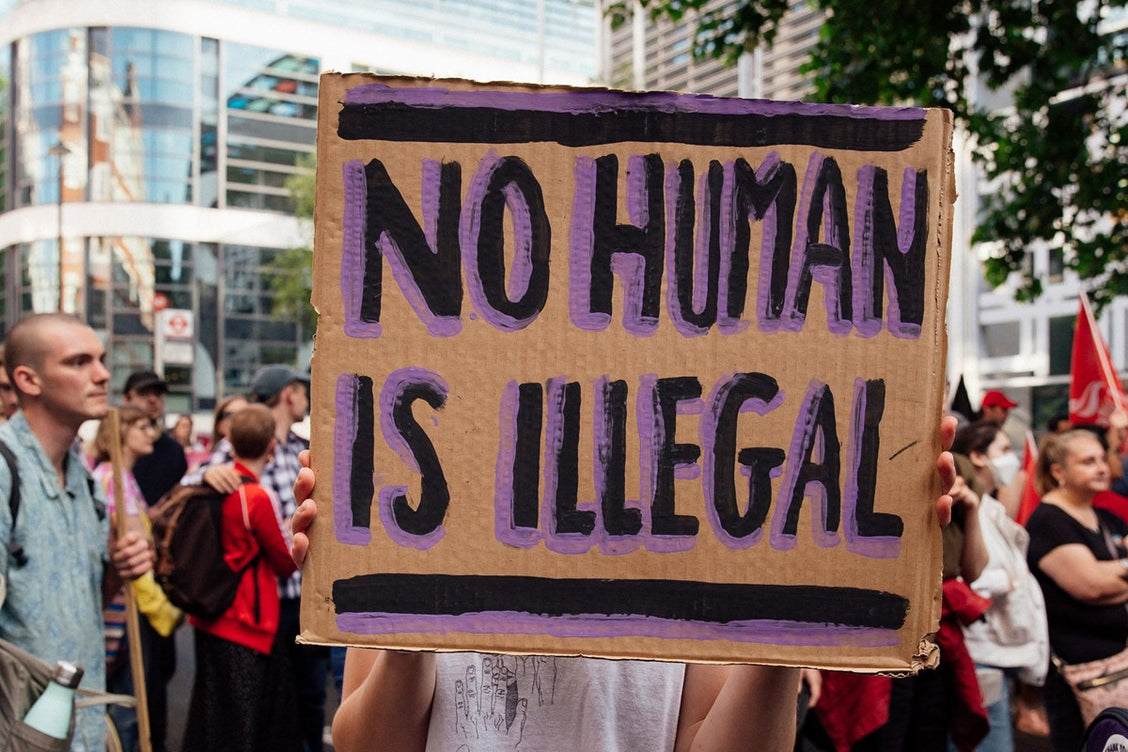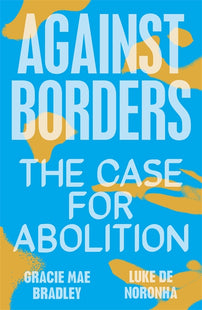On the Small Boats Bill
The British government's Small Boats Bill is neither an aberration nor a cynical distraction from other Government woes, but an act that it will cause real material harm to thousands. In response, Gracie Mae Bradley argues, the left needs a radical, multi-disciplinary strategy that works towards the best, but plans for the worst.

Introduced shortly after a far-right riot outside an asylum hotel in Knowsley, Merseyside, and only months after the attempted firebombing of a migrant centre in Dover, the so-called Small Boats Bill is not an aberration, or a cynical distraction from other Government woes. If it ever comes into force, it will cause real material harm. However, it would, like so much immigration legislation, fail in its stated aim of stopping people from coming to the UK via irregular routes. It cannot stymie the fundamental human impulse to seek out liveable futures. Its threats of immediate, extra-judicial detention, and summary deportation, possibly to Rwanda, would instead merely deter anyone who manages to get to the UK from interacting with the authorities. The boats will not stop, and nor will the lorries and other clandestine means of movement, but people will be too frightened to claim asylum, or to try to regularise their status in other ways once they arrive, if they aren’t immediately detained. Thanks to the hostile environment, what the Bill would really do, as with all attempted immigration controls, is enlarge the class of effectively rightless people in the UK – people who are forced into unsafe, unsuitable housing, and exploitative relationships with people who have power over them, and have little support when they experience harm. The Bill will enlarge the class of people isolated from essential goods and services, like education, healthcare and the social safety net. It will produce more racialised, rightless workers, all too coincidentally in the context of a post-pandemic, post-Brexit shortage of labour.
Detaining everyone who arrives in the UK by an irregular route, i.e. all people seeking asylum, is a guarantee of significant harm, and a further erosion of the now extremely shaky liberal consensus around basic legal rights, such as no detention without judicial oversight. It’s the kind of erosion that takes place in a time of racialised crisis (New Labour’s proposal for 90-day detention of terror suspects comes to mind as one antecedent here). It’s no coincidence that, given its more or less stated incompatibility with the Human Rights Act, the Bill would lead to more adverse rulings from the European Court of Human Rights, strengthening hard-right arguments for our withdrawal from the European Convention on Human Rights entirely; a problem for migrants and citizens both.
Detaining more people means building more immigration camps; all while the Government tells us that it does not have enough money to pay healthcare workers a living wage, ensure adequate social housing, or make disability benefits enough to live on. As with so many prisons, once capacity is created, the state and private interests will work together to ensure that they are full. There is a magic money tree, but only to pay for surveillance and punishment.
[book-strip index="1"]
There has been a predictable and welcome groundswell of popular opposition to the Bill, which the government and other agencies have countered by demonising migrants, their lawyers, and others who speak out. Much has been made of Gary Lineker’s removal from Match of the Day. Again, we should understand this attempted silencing not as an aberration, but as part of a wider state-sanctioned assault on free expression and dissent, operating through mechanisms like the Prevent policy, the crackdown on protest through the latest Policing Act, and the partisan capture of regulatory bodies like the Charity Commission.
Where do we go from here? We condemn every new hostile immigration law that is sent our way, and they keep on coming. The relentlessness of this trajectory tells us many things, one of which is that condemnation is necessary but insufficient. Lobbying can probably blunt the new law’s edges, and somebody has to brief, but we should remember that the professionalised immigration sector devoted enormous energy to trying to stop the last Nationality and Borders Act, to limited avail. Legal challenges will likely bear some fruit, but lawfare is also insufficient: cases can move slowly, harm is done in the meantime, and in recent years the Government has tended to respond to legal challenges by re-legislating for harmful powers with a bit of tinkering around the edges, or by threatening to shred legal rights entirely.
As Luke and I argued in Against Borders, if everybody defaults to firefighting, all the state has to do is threaten regressive legislation to keep us all stuck defending an already unjust status quo. Our movement needs to understand itself as an ecosystem, one that mobilises to stop new threats, prepares to support people practically if those threats are enacted, and keeps building towards the positive, radical changes that we need to reduce the reach and impact of borders on people’s lives, and to break the logic of control and punishment that governs how states treat people on the move.
We saw a synergy between a whole range of tactics and political perspectives in our work against the Policing, Crime, Sentencing and Courts Act: mobilisations functioned not only to condemn the law, and as a show of power, but also as a recruiting ground for more permanent infrastructures like police monitoring groups, which endure even now the law is in force. We have to take the same approach now: we need physical presences and mobilisations in solidarity with people in asylum hotels and other places of quasi-detention, as well as continued capacity in local communities to respond to and oppose immigration raids. At the very local level, we need to cultivate networks of care and solidarity that will be able to provide at least some support to people who can’t turn to public services. Trade unions need to strengthen their infrastructure for confidentially supporting and representing undocumented workers. Progressive policy minds need to set out clearly what “safe” routes and a “humane” asylum system look like, before that rhetoric is further co-opted by Government. And somebody urgently needs to make sure that Labour doesn’t get away with just being marginally less bad than the Government, and actually understands which regressive measures it must commit to repealing should it come to power at the next election.
For a movement that has been fighting a battle of attrition for years, it probably feels counterintuitive to say that now is the time to take a breath and strategise. But Parliamentary lobbying, and targeted arguments to put specific and especially deserving groups out of reach of the Bill are not, and have never been enough. If we really want to mount a meaningful defence of people’s freedom to move in the long run, a radical, multi-disciplinary strategy that works towards the best, and plans for the worst, is what this moment demands.
Gracie Mae Bradley is the co-author, along with Luke de Noronha, of Against Borders. She has written for the Guardian, Independent, OpenDemocracy, VICE, and more publications
[book-strip index="2"]


